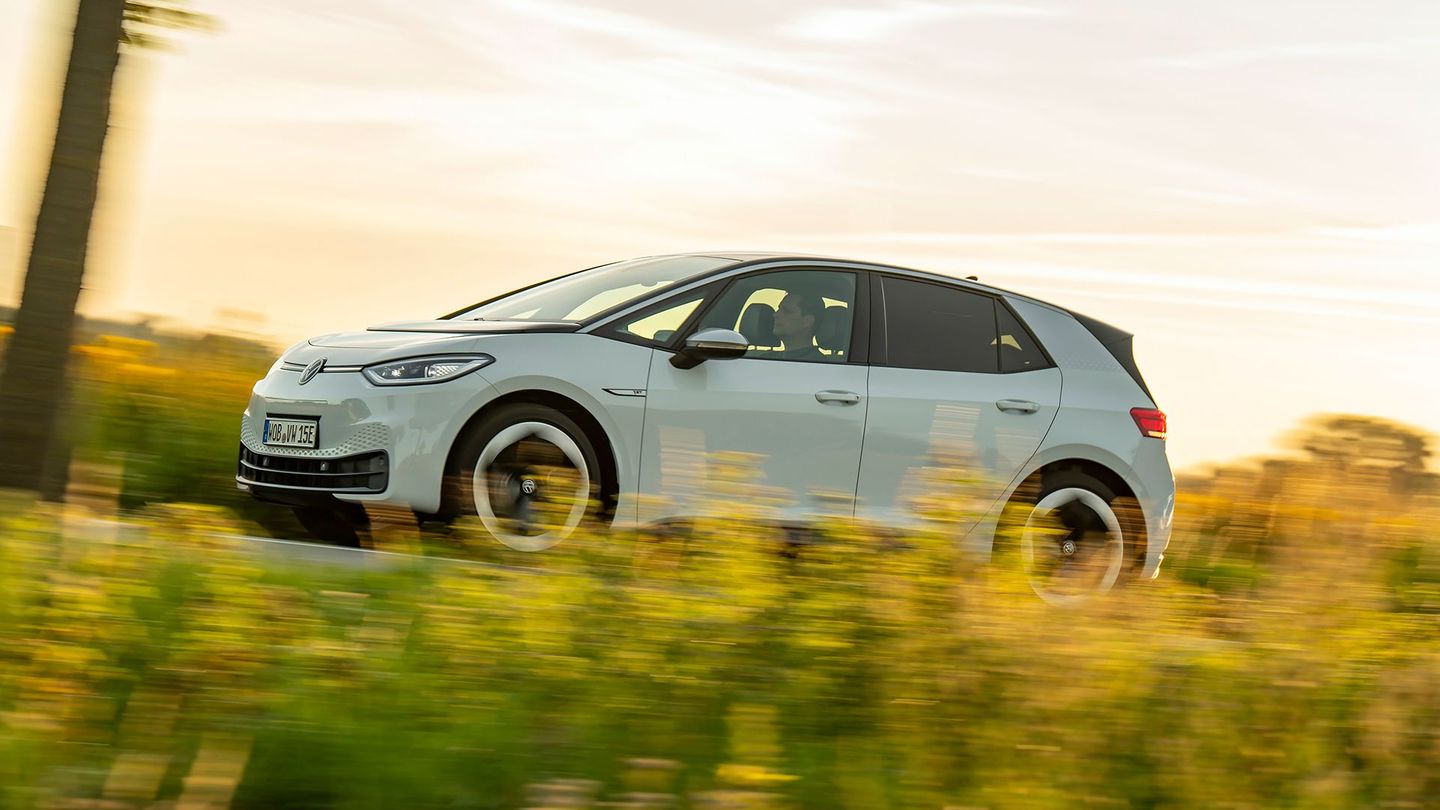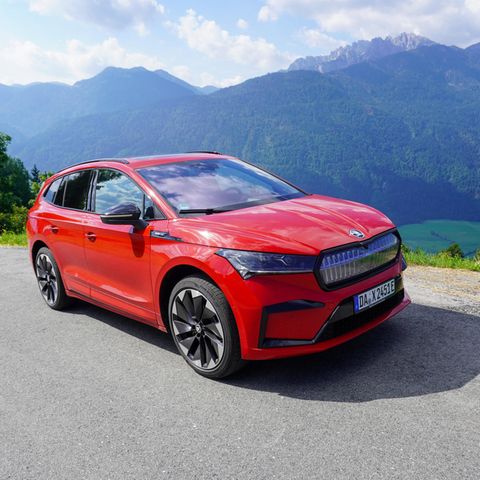Automotive industry
German electric cars: Why they are better than their reputation
Copy the current link
E-cars from Germany are not convincing, claims economist Monika Schnitzer. Is that correct? The numbers show something different. A fact check.
The Economic Advisory Council (vulgo: the economic experts) is an important mood-maker. The three male and two male professors advise the federal government, and their analyzes shape the opinions of Germans. Now the economy has Monika Schnitzer, economist from Munich, in the “South German newspaper” claims that German cars (she means especially electric cars) are no longer convincing and can hardly hold their own against Chinese ones. So VW stays “Sit on his cars because they are too expensive and not attractive enough” be.
Is that correct? An objective look at the numbers.
1. Germans mainly buy German electric cars
If you look at the registration statistics from the Federal Motor Transport Authority, around 69 percent of German electric car buyers chose models from German manufacturers and their subsidiaries from January to October 2024. Foreign suppliers are particularly affected by the downward trend in sales figures; VW and Mercedes even increased significantly in October. In first place among the most popular electric vehicles was not Tesla or a Chinese provider, but the Škoda Enyaq from the VW Group. Including combustion engines, 64 percent of Germans bought cars from German manufacturers and their subsidiary brands in October. The top ten, led by the VW Golf, are exclusively German brands (Opel included).
2. German electric cars are also very popular in Europe
Among the 20 best-selling electric cars in Europe (period January to September 2024) were ten models from German companies. Tesla’s Model Y and Model 3 are still ahead, especially because Tesla boss Elon Musk has aggressively priced. Only one Chinese appears in the list, the MG4. This was also pushed into the market by low prices supported by Beijing, especially through small leasing installments. (Volvo also has a Chinese owner, Geely, but is still considered an independent company.)
3. The prices of German electric cars are plummeting
Even with German models, the list and transaction prices, i.e. those that a customer actually pays in the end, are falling. BMW sometimes offers a 24 percent discount. VW has reduced the starting price for the ID.3 to under 30,000 euros, and there is a permanent discount of 3,570 euros for other models. Opel has made its popular SUV Mokka almost 8,000 euros cheaper, the electric Corsa by almost 5,000 euros, and it is now also available for under 30,000 euros. The trend will increase in the coming year because manufacturers will have to sell more electric cars to meet the EU’s strict CO2 fleet limits. At the same time, Chinese products could become more expensive because of the new tariffs.
4. The quality of German electric cars is top
The ADAC has been carrying out comparative tests with electric cars from all over the world for years. This shows that German manufacturers are at the top or even leading almost everywhere. Fiat and Renault dominate when it comes to small cars – because German manufacturers do not yet serve this category. When it comes to small cars, Opel is on a par with the South Koreans Hyundai and Kia. The bigger the electric cars, the better the Germans. In the middle class, the Škoda Enyaq from the VW Group leads with a grade of 1.6, well ahead of the widely celebrated providers Polestar, Nio, Kia and Genesis. In the upper middle class, the VW ID.7 Pro achieved the best rating ever achieved with a 1.5. The upper class is qualitatively dominated by Porsche, Mercedes and BMW.
5. The software in German electric cars is getting better and better
For a long time, Tesla was considered the benchmark when it came to software for propulsion, navigation and multimedia. But times have changed. Mercedes and BMW have made enormous progress, and VW is also achieving excellent test results – after painful initial problems. The assistance systems in particular work reliably, and the Wolfsburg-based company is now ahead of almost all Asians. The Germans, and indeed all non-Chinese manufacturers, have the greatest catching up to do in China, the world’s most important sales market. The Chinese, unlike the rest of the world, love “intelligent” systems. Lots of screens, lots of multimedia, maximum smartphone integration, autonomous driving – all of this is very popular. And it continues. Prototypes can be seen at trade fairs that can shake themselves out of the snow or transform into a living room if necessary.
Conclusion: The claim that German electric cars are unattractive cannot be supported by objective figures. On the contrary, the demand for them is growing. It would be appropriate not to badmouth them unnecessarily – even if you are “economics” company.
Source: Stern
I have been working in the news industry for over 6 years, first as a reporter and now as an editor. I have covered politics extensively, and my work has appeared in major newspapers and online news outlets around the world. In addition to my writing, I also contribute regularly to 24 Hours World.






